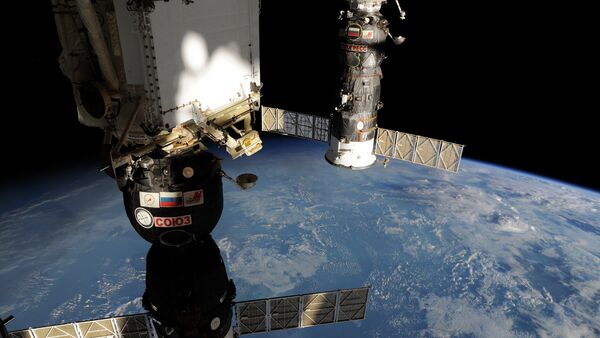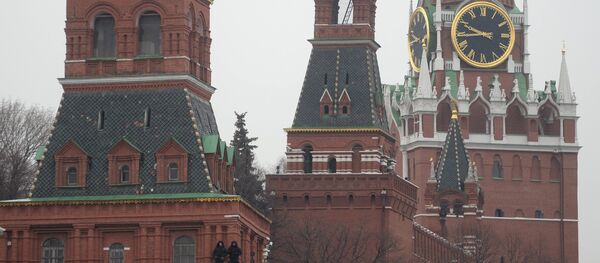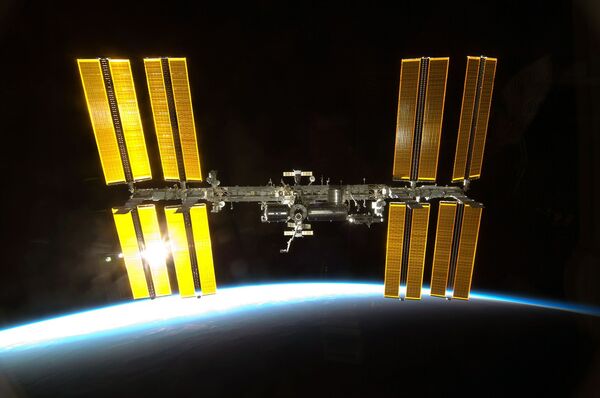MOSCOW (Sputnik) — Primary and backup crews for 53/54 expedition to the ISS were green-lit by the joint commission at a meeting in the training center.
The teams were approved to undergo the pre-flight training, which concludes preparation period before the launch from the Baikonur Cosmodrome on September 13th. The primary crew of 53/54 Expedition consists of cosmonaut Alexander Misurkin, NASA astronauts Joe Acaba and Mark Vande Hei. The backup crew consists of cosmonaut Anton Shkaplerov, astronauts Scott Tingle and Shannon Walker.
#МКС на фоне #Земли. Фотография была сделана с шаттла Endeavour. Миссия #STS-118, 19 августа, 2007. pic.twitter.com/iHUXwTYSDG
— Lyudmila (@yachnayal) 9 ноября 2016 г.
"During the third spacewalk at my previous expedition, we had to perform a task that was not planned. We had to fix thermal covers on antennas on one of the Russian modules. We did not have special equipment to do it at the time so we had to improvise. I used both of my hands while dealing with small screws and my partner held my legs so I did not float into space," cosmonaut Misurkin, the Souyz commander and head of Expedition 54, recalled on Friday.
The program will also include over a dozen scientific experiments in medicine, biology, biotechnology and geophysics, which mostly cannot be replicated on the Earth.
Acaba, who is a flight engineer 2 for the expedition, said that the teams would continue to study the effects of space travel on human body as "even though we’ve been going to space for decades … we have to continue learning that type of information if we want to go to Mars and beyond."
The third member of the primary team, Vande Hei, a flight engineer 1, also emphasized that science would be a priority in the expedition.
"There’s a lot of interesting science going on the ISS. I study physics… probably we’ll have experiments which involve combustion and orbital mechanics," Vande Hai said.
Misurkin said that one of the experiments during the previous expedition was conducted during the spacewalk.
"We took samples from the external surface of the ISS to check whether there were traces of life. I was in shock even before the experiment started because we were trying to find life in the environment where temperatures vary from minus 100 degrees Celsius [minus 148 degrees Fahrenheit] to +100 degrees Celsius, with high radiation background. And in space there's also no 'food' in our common understanding," Misurkin explained.
The head of Expedition 54 said that some microorganisms were found there.
"Obviously, it was transported from the Earth, but the fact that it existed in some form in these conditions was just simply amazing.
On top of scientific experiments, the crew will work on technical maintenance of the ISS and will receive several visiting vehicles: Progress MS, Dragon and Cygnus.
All members of the 53/54 expedition said they realized that tough challenges lay ahead, but explained that genuine teamwork would be a key to success.
"This time I’ve been entrusted with the job of the commander of Expedition 54. It’s a great honor, but also a great responsibility at the same time. In this position, I think my main task is to ensure that all people aboard the ISS coordinate their work and have confidence that we have each other's backs all the time," Misurkin stressed.
Members of Expedition 52, Russian cosmonaut Fyodor Yurchikhin and US astronauts Jack Fischer and Peggy Whitson, are expected to return to the Earth.



